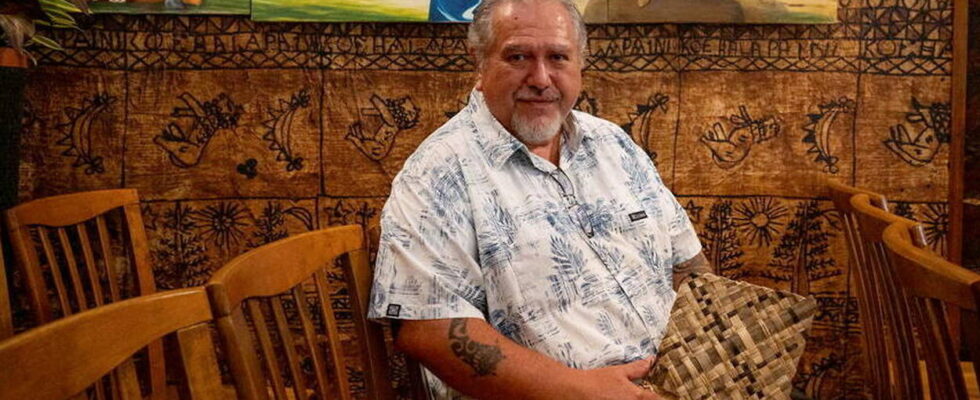Eread with a large majority, the separatist Moetai Brotherson became president of French Polynesia on Friday. He was chosen by the local assembly representatives of this South Pacific community.
This 53-year-old former rugby pillar, in favor of a smooth transition to independence, was chosen by the 38 separatist representatives of the Assembly, elected in the territorial elections on April 30.
In a Territorial Assembly of 57 seats, where the separatists thus have an absolute majority, the representatives also granted 16 votes to the outgoing autonomist president Édouard Fritch, and 3 to another autonomist candidate, Nicole Sanquer.
The day before, they had elected another separatist, Antony Géros, at the head of the Assembly. In a speech delivered without notes, Moetai Brotherson assured France of its “respect” while calling on the population not to “fear independence”, which will “never be imposed” on Polynesians.
A self-determination referendum in 10 to 15 years
Despite the re-registration in 2013 of French Polynesia on the UN list of non-autonomous territories to be decolonized, France has never wished to engage in negotiations around the decolonization of this community.
Far from the peaceful spirit displayed by Moetai Brotherson, the new President of the Assembly, Antony Géros, considered in his first speech that France had “used its authority to make and break majorities according to its interests, until ‘to come and instrumentalise the elected officials’ during the political instability, between 2004 and 2013.
Antony Géros, close to Oscar Temaru, the founding president of Tavini Huiraatira, represents the radical line of the Polynesian independence party, which wants rapid independence.
Moetai Brotherson on the contrary indicated that he hoped for a referendum of self-determination “in 10 to 15 years” and estimated “not to be able to arrive there in the five years which come under good conditions”.
READ ALSOWhat if the Overseas Territories announced the world to come?
Their large majority not having much to fear from the autonomist opposition, the main question concerns the coexistence between these two lines, one of which will control the government and the other the Assembly.
“There are two currents within (within) Tavini: that of Oscar Temaru who wants independence quickly and that of Moetai who wants to take his time”, sums up Georges Ravat, a 57-year-old fruit seller.
“But the autonomists had to be kicked out, they made too many mistakes during the Covid and there were too many injustices in taxes” he assures.
In Polynesia, the wave of degagism hit the separatists hard, some of whom, like Édouard Fritch or Gaston Tong Sang, had been in power almost continuously for around forty years.
With younger candidates and a campaign focused on purchasing power, the separatists appealed beyond their traditional electorate.
“No longer dependent on France”
“There was no change, only tax increases, so now we will see if the new government lowers the cost of living, because shopping and the canteen have increased a lot”, hopes Jenny Faareoiti, a cook from 40 years.
“I grew up in a separatist family and what we want is freedom, no longer depending on France”, claims for her part Here Mehao, a marketing student.
Others fear a break with the metropolis, which transfers 1.7 billion euros each year to finance Education, Security or Justice in French Polynesia from this South Pacific community.
“We need this money, this food that we import”, worries Hinatea Rei, a waitress in her thirties. At his side, sommelier Raimana Holman adds, estimating, “we would crash on the reef without the help of France! »
Moetai Brotherson says he wants a smooth transition, social and sustainable development. He should present his government on Monday, announced joint. Due to multiple mandates, he will leave his seat as deputy (Nupes) and will be replaced by his alternate Mereana Reid Arbelot.
The pro-independence president of the Caledonian Congress, Roch Wamytan, was in Papeete to attend the elections of his lifelong allies.
“As soon as they have the political and institutional levers with the three – deputies, presidency of the Territorial Assembly and of the government – and we over there the presidency of the congress and of the government, we have to work together to move forward our political project, which is independence,” he told AFP.
“But the French state wants to stay in the Pacific thanks to us, thanks to our territories, and it will be horribly complicated,” he believes.
